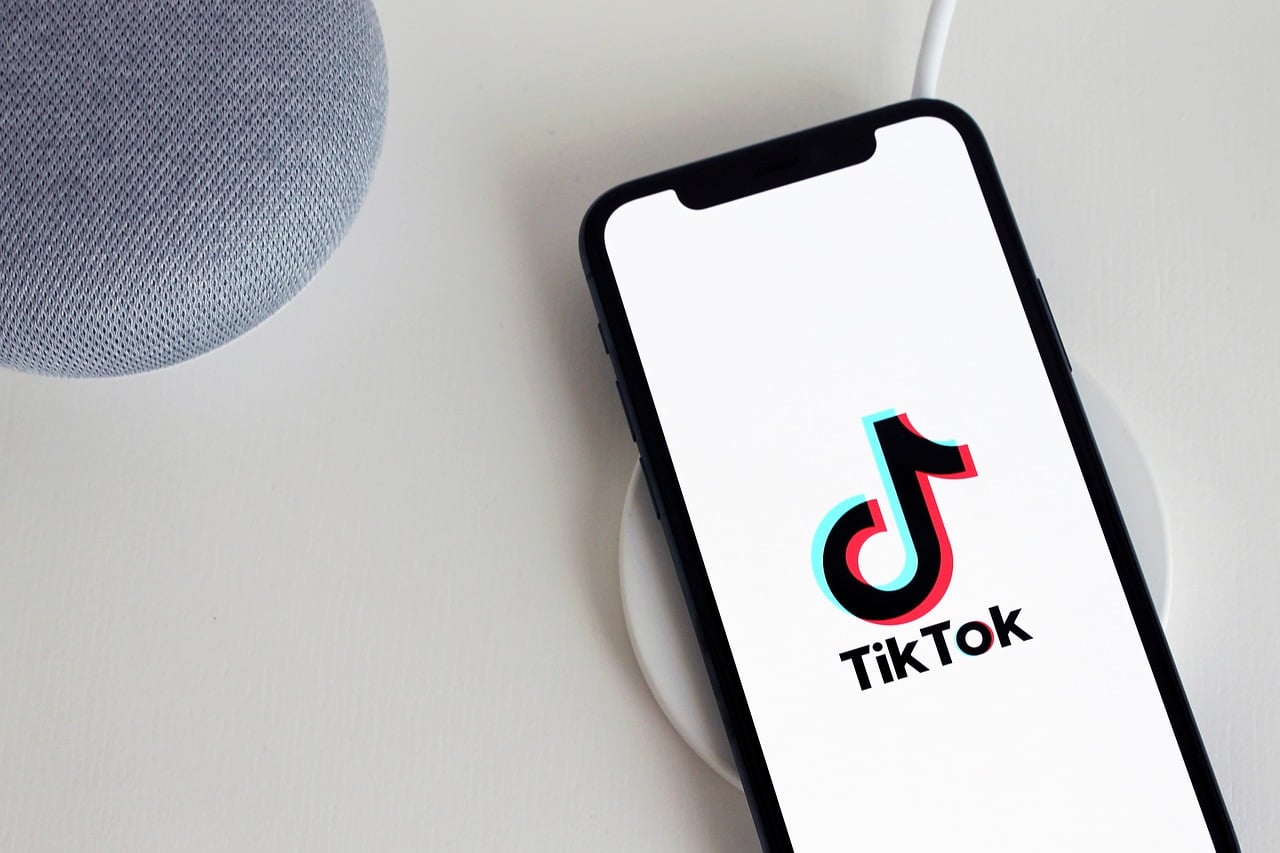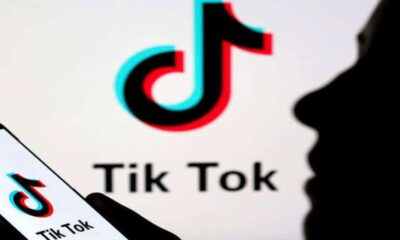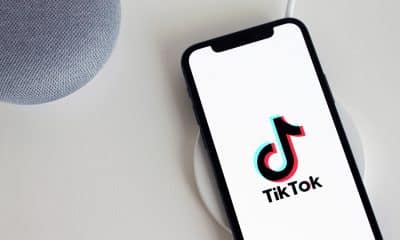Business
TikTok Heads To Court Over US Law That Could Lead To A Ban On The Popular Platform

The United States government and TikTok will face off in federal court on Monday, as oral arguments begin in a pivotal legal issue that may determine whether or not a popular social media platform used by nearly half of all Americans will continue to operate in the country.
Attorneys from both parties will appear before a panel of judges at the federal appeals court in Washington. TikTok and its Chinese parent company, ByteDance, are appealing a US law that mandates them to cut ties or face a ban in the US by mid-January. The legal dispute is expected to reach the United States Supreme Court.
The measure, signed by President Joe Biden in April, marked the end of a years-long saga in Washington over the short-form video-sharing app, which the government views as a national security danger due to its ties to China. However, TikTok claims the rule violates the First Amendment, while others contend it echoes crackdowns witnessed in totalitarian regimes around the world.
TikTok Heads To Court Over US Law That Could Lead To A Ban On The Popular Platform
In court documents filed this summer, the Justice Department emphasized the government’s two main concerns. First, TikTok captures massive amounts of user data, including sensitive information about viewing patterns, which may fall into the hands of the Chinese government if coerced. Second, the United States claims that the proprietary algorithm that drives what users view on the app is susceptible to manipulation by Chinese authorities, who can use it to mold information on the platform in ways that are difficult to detect.
TikTok has frequently stated that it does not share U.S. user data with the Chinese government and that the government’s worries have never been proven. In court documents, attorneys for TikTok and its parent business said that members of Congress attempted to punish the platform based on propaganda they thought to be on TikTok. The corporations also stated that divestiture is impossible and that the app will be forced to close by January 19 if the courts do not intervene to prevent the law.
“Even if divestiture were feasible, TikTok in the United States would still be reduced to a shell of its former self, stripped of the innovative and expressive technology that tailors content to each user,” the businesses claimed in a legal brief they submitted in July. “It would also become an island, preventing Americans from exchanging views with the global TikTok community.”
Opponents of the bill argue that a prohibition would disrupt the marketing, retail, and lives of many diverse content providers, some of whom sued the government in May. TikTok is paying the legal fees for that litigation, which the court has clubbed with the company’s complaint and another filed in favor of conservative creators working with a nonprofit called BASED Politics Inc.
Though the government’s primary justification for the statute is public, major portions of its court papers contain classified information that has been redacted and concealed from public access. The firms have requested that the court reject the secret files or appoint a district judge to sift through the data, which the government has resisted since it will cause a delay in the case. If permitted into court, legal experts believe the secret documents could make it practically difficult to know some of the elements that could influence the final decision.
In one of the redacted statements submitted in late July, the Justice Department claimed TikTok received direction from the Chinese government regarding content on its site, but did not provide any other information about when or why those occurrences occurred. Casey Blackburn, a senior US intelligence official, said in a legal declaration that ByteDance and TikTok “have taken action in response” to Chinese government orders “to censor content outside of China.” Though the intelligence community had “no information” that this had occurred on TikTok’s platform in the United States, Blackburn stated that it “may” happen.
In a separate court filing, the DOJ stated that the US is “not required to wait until its foreign adversary takes specific detrimental actions before responding to such a threat.”
However, the corporations contend that the government might have adopted a more customized approach to addressing their concerns.
More than two years ago, during high-stakes negotiations with the Biden administration, TikTok submitted the government with a 90-page draft agreement that allowed a third party to supervise the platform’s algorithm, content moderation processes, and programming. TikTok claims to have spent more than $2 billion voluntarily implementing some of these steps, including putting U.S. user data on Oracle-controlled servers. However, a settlement was not struck since government officials effectively walked away from the bargaining table in August 2022.
Due to TikTok’s scale and technical complexity, justice officials claim that compliance with the draft agreement is difficult or would need enormous resources. The Justice Department also stated that the best way to address the government’s concerns is to cut ties between TikTok and ByteDance, given the porous relationship between the Chinese government and Chinese enterprises.
However, some experts have questioned whether such a move would hasten the so-called “decoupling” between the United States and its strategic foe, especially since other China-founded enterprises, such as Shein and Temu, are also making a major mark in the West. Last Monday, the Biden administration proposed rules that would restrict duty-free products exported straight from China.
TikTok Heads To Court Over US Law That Could Lead To A Ban On The Popular Platform
ByteDance has openly said that TikTok is not for sale. Despite this, several investors, like former Treasury Secretary Steven Mnuchin and millionaire Frank McCourt, have announced offers to buy the platform. However, even if such a transaction were to materialise, it would most likely be devoid of TikTok’s vaunted algorithm, raising concerns about the platform’s ability to serve up the type of personally tailored videos that users have grown to demand.
The political alignments on the topic are playing out in unexpected ways.
The measure, which passed with bipartisan support in Congress, sparked opposition from several progressive and Republican politicians who expressed worries about handing the government the authority to block a platform used by 170 million Americans. Former President Donald Trump, who attempted to prohibit TikTok while in office, is now opposed to a ban because it would benefit its competitor, Facebook, a platform Trump continues to criticise since his 2020 election loss.
In court, free speech and social justice organisations have filed amicus papers in support of TikTok, alleging that it violates users’ First Amendment rights and suppresses minority community speech by interrupting a tool that many of them use to fight for causes online. Some libertarian groups with ties to ByteDance investor Jeff Yass have also submitted briefs in defence of the company.
Meanwhile, more than 20 Republican solicitors general, former national security officials, and China-focused human rights organisations have backed the Biden administration in its request that the court preserve the statute.
SOURCE | AP
Business
Forced Sale Google Chrome Could Fetch $20 Billion

Antitrust officials in the US could force the sale of Google’s Chrome browser for up to $20 billion, demonstrating the tremendous worth of the world’s most popular web browser.
Bloomberg Intelligence attributes Chrome’s projected worth to its more than 3 billion monthly active users. The US Department of Justice is preparing to request a federal judge order the browser’s separation from Google’s parent company, Alphabet.
Chrome’s worth comes from its overwhelming 61% market share and its crucial role in Google’s advertising ecosystem. User data enables businesses to better target adverts, and the browser also acts as an important distribution mechanism for Google’s AI technologies.
Industry analysts think it may be difficult to find a suitable buyer. While tech behemoths like Amazon could finance the purchase, they would likely face regulatory scrutiny.
AI businesses, such as OpenAI, may emerge as more viable contenders. They could potentially leverage Chrome to broaden their reach and develop an advertising business.
“It’s not directly monetizable,” one analyst told Bloomberg. “It functions as a gateway to other things. It’s unclear how you would assess that in terms of pure revenue generation.”
Google opposes prospective sales, claiming that they will hamper innovation. The firm does not break out Chrome’s revenue individually in its financial filings, even though the browser’s user data plays an important part in the company’s principal revenue stream, advertising.
The DOJ’s suggestion follows Judge Amit Mehta’s August decision that Google had illegally monopolized the search industry. The judge will consider the recommended remedies at a two-week hearing in April 2024, with a final judgment due in August 2025.
Related News:
Appeals Court Delays Order For Google To Open Its App Store In Antitrust Case
Appeals Court Delays Order For Google To Open Its App Store In Antitrust Case
Business
Bitcoin Has Set a New Record And Is Approaching $100,000.

(VOR News) – Bitcoin broke beyond the $98,000 mark for the first time on Thursday as investors awaited Donald Trump’s second term as president. All of this happened during the day. As such, cryptocurrency has reached a significant turning point.
According to Coin Metrics, the top cryptocurrency was trading at $97,541.61 during the most recent trading session. Merchants provided this information. This suggests a price gain of more than three percent during the previous trading session.
When the period began, Bitcoin peaked at $98,367.00.
During the premarket trading session, MicroStrategy, a platform that facilitates cryptocurrency foreign exchange trading and serves as a bitcoin proxy, saw a 13% gain. Coinbase, on the other hand, had a 2% rise during that period. Furthermore, all of these increases occurred simultaneously.
The market value of Mara Holdings increased by 9%, which helped raise the valuation of mining companies overall. This was among the factors that led to the total rise.
Because of the widespread belief that President Trump will usher in a new era of prosperity for cryptocurrencies, one marked by more favorable laws and the possible creation of a national strategic bitcoin reserve, the price of Bitcoin has been rising steadily this month.
The most recent change brought about by the increase was the consequence of higher financing rates and more open interest in the futures market during Asian trading hours. The rise was the catalyst for this change. This action was prompted by the ensuing rush.
Throughout its lifespan, this legislation was the catalyst for this change for a variety of reasons. At the same time, spot market premiums decreased, according to CryptoQuant statistics. All of this happened at the same time.
Furthermore, a number of short liquidations have been sparked by the recent spikes in Bitcoin’s price, which has caused the price to rise overnight. As a result, the price has gone up much more. As a result, the total number of short liquidations has increased.
According to CoinGlass, these liquidations have effectively produced more than $88 million in capital during the last 24 hours.
Rob Ginsberg, an analyst at Wolfe Research, noted in a study released on Wednesday that “historically, following previous movements of this magnitude, Bitcoin has either entered a consolidation phase or disregarded the overbought condition as investors accumulate.” This phrase relates to the fact that this particular move has happened before.
Ginsberg stated this in reference to the evolution of Bitcoin over time.
Ginsberg’s answer makes reference to Bitcoin’s propensity to go through a period of consolidation. The comment also made reference to this.
He said, “Considering we are emerging from an extended consolidation phase and the price has reached a new high, it suggests that the pursuit is underway.”
The crucial psychological milestone of $100,000 is expected to be reached in the upcoming weeks, and this breakthrough could happen as early as Thursday. It seems likely that this level will be reached. There is a chance that this new development will take place.
This task will be carried out against the backdrop of this historical era. In addition, if Trump were to win a second term, federal budget deficits would increase, inflation would likely increase, and the dollar’s position in international affairs would change.
The administration that Trump would run during his presidency would be responsible for these consequences. All of these characteristics would positively impact the value of Bitcoin as a currency if they were taken into account in the order that they are presented.
The price of bitcoin had risen by more than 130% by the beginning of 2024.
SOUREC: CNBC
SEE ALSO:
PayPal’s Technical Challenges Are Affecting Thousands Of Customers Globally.
NVIDIA’s Earnings: The Leader In AI Chips Demonstrates Relentless Growth.
Business
Target Struggles in the Third Quarter: Offers Tempered Holiday Outlook and Price Cuts

(VOR News) – Target experienced a modest rise in sales during the third quarter; nevertheless, profitability declined due to reduced customer spending attributed to inflation and adverse effects from the ongoing costs associated with the October dockworker strike.
Despite ongoing consumer expenditure in the United States, but with more prudence, the Minneapolis retailer did not meet Wall Street’s forecasts for the quarter and similarly disappointed industry analysts with its projections for the final quarter of the year.
Target’s reduction in prices for Christmas products, including a Thanksgiving promotion that lowered the cost of the holiday feast relative to last year’s total, raises concerns about disappointing quarterly results.
Target’s latest quarter sharply contrasts with competitor Walmart, which reported another quarter of exceptional revenues on Tuesday and provided positive forecasts for the forthcoming holiday season. Amazon disclosed last month that its quarterly profits had risen. Amazon surpassed projections with an 11% rise in quarterly revenue.
Target fell over 21% on Wednesday morning.
Chairman and CEO Brian Cornell stated, “We encountered distinct challenges and financial constraints that impacted our overall performance.”
FactSet reports that Target’s net income for the quarter ended November 2 was $854 million, or $1.85 per share, markedly below the anticipated $2.30 and a decline from $971 million, or $2.10 per share, in the same quarter of the previous year.
Despite an increase in sales to $25.67 billion from $25.4 billion the previous year, they fell short of Wall Street’s projections.
Target announced that for the fiscal fourth quarter, it anticipates earnings per share to fall between $1.85 to $2.45. This amount is below the $2.65 per share forecast by analysts surveyed by FactSet.
The retailer announced that in the third quarter, its comparable sales, derived from stores and digital platforms operational for a minimum of one year, increased by 0.3%.
This is inferior to the second quarter’s 2% growth. Several months of decreases, comprising a 3.7% reduction in the first quarter and a 4.4% reduction in the company’s final quarter of 2023, were counterbalanced by the rise in the April–June period.
Cosmetics sales rose by almost 6%, whilst food, beverages, and necessities such as shampoo experienced gains in the low single digits relative to the previous year.
The positive attributes were negligible. Target’s quarterly customer traffic rose by 2.4%. Target officials report that this represents an increase of 10 million sales transactions compared to the previous year. Digital comparable sales rose by 10.8% due to a 20% enhancement in same-day delivery facilitated by the Target Circle loyalty program and double-digit growth in its drive-up service.
Target encountered several challenges.
Target’s food and beverage sales constitute under 25% of overall sales, indicating a greater dependence on luxury items such as apparel and accessories.
Target management acknowledged that the company, similar to other retailers, had to redirect specific items due to the strike of 45,000 dockworkers, the first occurrence since 1977.
The accumulation of commodities in warehouses escalated operational expenses and diminished corporate earnings.
The commitment by President-elect Donald Trump to impose elevated import tariffs is resulting in difficulties for Target and other enterprises. Trump advocates for a 60% tariff on Chinese imports and a 20% levy on all other products. Cornell stated that, despite monitoring trends meticulously, the corporation has prioritized diversifying its supplier network.
“Currently, there exists considerable uncertainty regarding future developments, and we will exercise our flexibility to adapt as necessary,” he stated on the call.
Buyers remain apprehensive due to ongoing uncertainty, as prices, albeit decreasing, remain elevated compared to a few years prior.
“They are exhibiting significant patience, pursuing promotions and outstanding value on essential pantry items,” Cornell stated during a conference call with reporters. “Over the year, they have consistently focused on discretionary categories and are practicing prudent shopping behaviors.”
Target officials indicated a decline in television purchases, although they expressed interest in incorporating candles, frames, and flowers into their home décor.
Target has been reducing prices to boost sales. Last spring, it reduced costs for numerous essentials, including milk and diapers. Almost fifty percent of the numerous goods offered this Christmas are priced below $20. Target is offering a Thanksgiving dinner bundle for four people at $20, which is $5 less than its 2023 Thanksgiving meal package.
SOURCE: USN
SEE ALSO:
Comcast Is Expected To Announce Its Cable Network Separation On Wednesday.
Canada’s Budgetary Watchdog Warns Over Trudeau’s Spending
-
Tech4 weeks ago
Apple Unveiled A Fresh Glimpse Of Their AI Featuring ChatGPT Integration.
-
Business4 weeks ago
Costco Is Offering The Peloton Bike+ At 300 Locations This Holiday Season.
-
News4 weeks ago
Boeing Reports $6 Billion Quarterly Loss As Striking Workers Vote Whether To Accept Contract Offer
-
News4 weeks ago
The FBI Looks At Claimed Leaks Of Sensitive Israel Attack Records.
-
News4 weeks ago
‘Malcolm In The Middle’ Star Frankie Muniz Lands Full-Time NASCAR Ride In 2025
-
Business4 weeks ago
The Volkswagen China CMO Faced Expulsion From China Due To Drug Use.





























